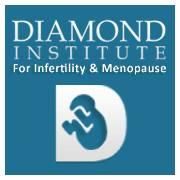What to Know Before Freezing Your Eggs

Whether you're focusing on your career goals or undergoing chemotherapy, egg freezing might seem like a safe, smart, and proactive step. However, before you commit to this process, it’s important to know what to expect. Use the following guide to ensure you’re making the right choice for your goals and lifestyle.
3 Things to Know Before Freezing Your Eggs
1. Details of the Procedure
Before you can freeze your eggs, you’ll need to commit to hormone injections for about 10 days. These hormones can cause mood swings and bloating, but they are crucial to stimulating egg production in the ovaries.
To retrieve the eggs, an infertility specialist must perform a minor surgery. You will be put under mild anesthesia, and the specialist will use a needle to move through the vaginal wall and access the healthy eggs in the ovarian follicle. Specialists compare this procedure to a blood test, or the beginning of the in vitro fertilization (IVF) process.
2. Likelihood of a Successful Birth

Unfortunately, just because you freeze your eggs now doesn’t guarantee they’ll be able to produce a child years later. Most frozen eggs have a 2-12% chance of resulting in a live birth. These odds can be influenced by the sperm sample used in the eventual fertilization, as well as the health and age of the individual hoping to conceive. To increase your chances of a successful live birth, your specialist will likely suggest freezing dozens of eggs.
3. Importance of Age
If you're hoping to end up on the higher end of the statistical range, time is of the essence. The earlier you freeze your eggs, the more likely they'll be capable of fertilization and a full term. In recent years, the average age of women who freeze their eggs has started to go down: from 38 to 36. Since there is yet no limit on how long eggs can be frozen, it makes sense to schedule the extraction as soon as possible.
To learn more about the egg freezing process, reach out to Diamond Institute for Infertility & Menopause of Millburn, NJ. For over four decades, they have been using advanced methods and procedures to fulfill the goals of their clients. Whether you’re not ready to have a child or are looking for a significant other, you can turn to Dr. Ndidimaka Onwubalili for more information on preserving your eggs. Visit the website for a closer look at their services, or call (973) 761-5600 to arrange for a consult.
About the Business
Have a question? Ask the experts!
Send your question

